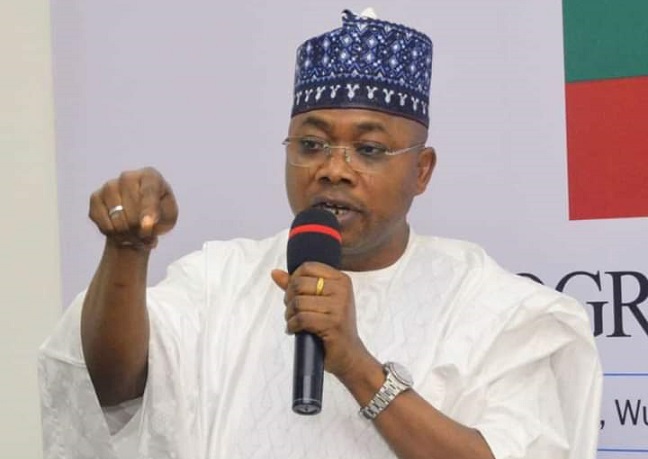National News
Stakeholders doubt credible elections in 2027, demand more investment in security, others
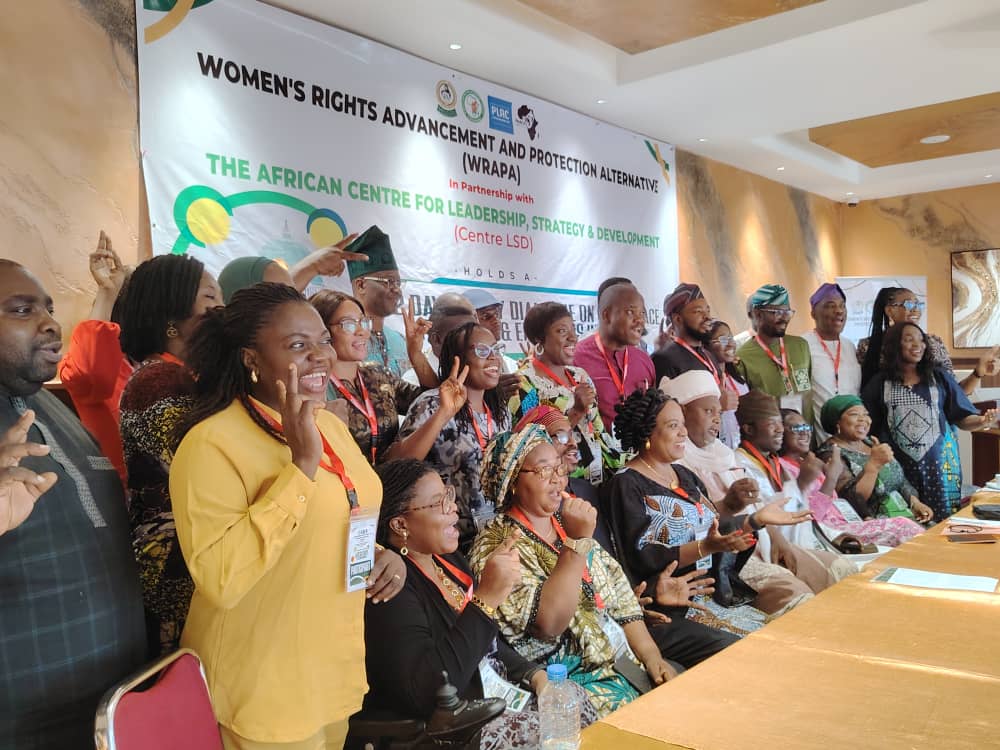
Stakeholders in election process in Nigeria comprises Civil Society Organizations and traditional rulers have raised concern regarding integrity of Elections in Nigeria, calling in the federal government to invest more in the security sector.
The stakeholders also blamed the high level of poverty, lack of means or freedom to assert their civic rights and political actors manipulating elections, where vote buying and exploitation of vulnerable communities distort democratic outcomes.
Speaking at a 2-day policy dialogue on Civic Space, Poverty, and Elections in Nigeria, organised by the duo of African Centre for Leadership, Strategy & Development (Centre LSD) and the Women’s Rights Advancement and Protection Alternative (WRAPA), a traditional ruler, Sarkin Yakin Gagi District Head Gagi, Sokoto, Alhaji Sani Umar Jabbi, said without corresponding investment in security Nigeria may not experience credible elections.
When asked in an interview during the event, the traditional ruler said: “We can’t have credible elections in 2027 because election is about opportunity for everyone to come and choose their leaders. When there is a segment of the society being sidelined because of insecurity, because of different forces when they are denied access to right to vote and I think it is not justice.
“So, for us to ensure credible and transparent elections there is need for heavy investment in the security agencies so that they can reach all the nooks and crannies to ensure that the citizens are safe and all the voting points are safe and citizens can have access to go confidently and choose leaders.
“So, there is need for more recruitment, more procurement of arms and ammunition to our security agencies and government need to improve their renumeration because if you see their quarters, it is not acceptable.
“If you go to other countries like the advanced countries you will see the welfare of police, here in Nigeria you will weep. So we want our leaders to address the contemporary challenges of insecurity and if you can’t increase the number of police, provide them with sophisticated technology that they visual very far location of bandits, they can detect them or launch attacks from far not only by physical combat.
“Nigeria is a rich nation why don’t we invest more so that we can have more fighter jets, more intelligence, technology, AI so that our security agencies will be more equipped to do the needful.”
Speaking on the outcome of the previous conference of the thought leaders, Director of Strategy, African Centre for Leadership, Strategy & Development (Centre LSD), Itia Otabor, said civic space in Nigeria has been shrinking due to increased governmental control, legal constraints, and intimidation of civil society actors, particularly women’s rights organizations.
He added that participants at the conference observed that these restrictions limit the ability of citizens to engage meaningfully in democratic processes and challenge injustices.
“Poverty exacerbates this situation by limiting access to information, civic education, and participation in political discourse. The economically marginalized often lack the means or freedom to assert their civic rights. Additionally, poverty has become a tool used by political actors to manipulate elections, where vote buying and exploitation of vulnerable communities distort democratic outcomes.”
He added that his organization has commissioned papers on some areas that will inform discussion, which include: Credibility Threshold of Elections, Protecting the Civic Space in Nigeria, Voter Turn Out and Programming in Nigeria, Appointment Criteria for INEC Chair and Commissioners, Suggestions for Electoral Reform towards 2027 Elections and Single Day for All Elections in Nigeria.
In his opening remarks, the Executive Director of the African Centre for Leadership, Strategy & Development (Centre LSD), Mr. Monday Osasah, said with approximately 133 million Nigerians experiencing multi-dimensional poverty, Nigeria faces significant development challenges.
Represented by the Director of Development Centre LSD, Dr. Margaret Fagboyo, said the recent elections in the Country have raised concerns about electoral integrity, and restrictions on civic engagement threaten the nation’s democratic progress.
“This two-day Policy Dialogue, organized by WRAPA and Centre LSD with support from the MacArthur Foundation, builds on previous research and a High-Level Conference of Thought Leaders. Our objective is clear: to examine research findings, share stakeholder insights, and develop a robust programming framework with informed policy recommendations.
Over the next two days, we will engage in rigorous discussions, debates, and idea-sharing. Your participation and expertise are invaluable in shaping our understanding of these complex issues and identifying potential solutions.
“Together, we can co-create a roadmap for addressing Nigeria’s triple challenge and promoting sustainable development, democratic governance, and human well-being.”
Speaking on behalf of the Women’s Rights Advancement and Protection Alternative (WRAPA), Hajia Saudatu Mahdi, Yemisi Nathaniel, who is the Director of programs, said the event was a strategic follow-through to the High-Level Conference of Thought Leaders on Civic Space, Poverty and Elections, held on April 29, 2025,
“The realities facing our nation are stark: a shrinking civic space, pervasive poverty, the erosion of electoral credibility, and growing distrust in public institutions. Yet, as was clearly articulated in the communique issued at the conclusion of that conference, hope lies in our shared capacity to organize, to advocate, and to insist on reforms that secure the civic and political rights of all Nigerians, especially women, young people, and marginalized communities.
According to her, the meeting is a call to resist complacency and performative advocacy. It is a call to move beyond rhetoric to the hard, sometimes inconvenient work of expanding civic space, demanding electoral integrity, and confronting poverty as both a cause and consequence of democratic failure
-
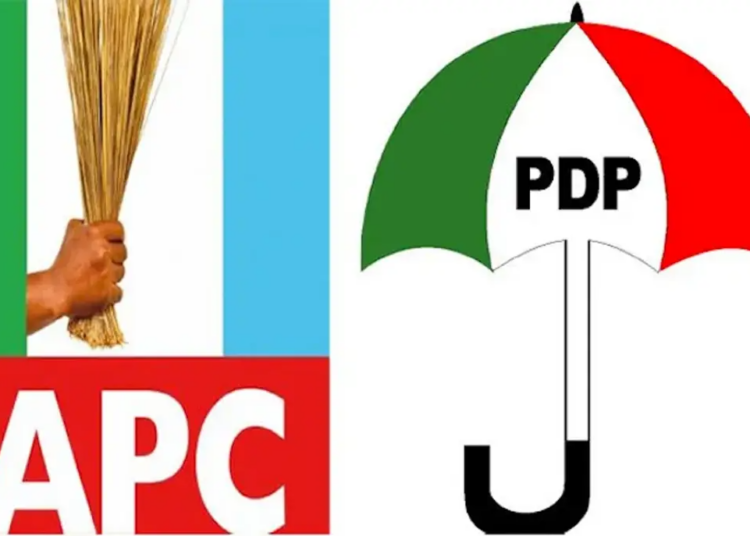
 Politics2 days ago
Politics2 days agoFormer Nigerian vice president dumps PDP
-
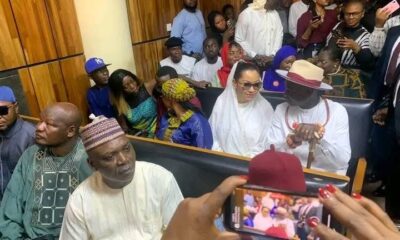
 National News2 days ago
National News2 days agoBreaking: Natasha arrives in court for arraignment over defamatory comments
-

 Crime and Law2 days ago
Crime and Law2 days agoArmed robbers cause panic in Ibadan, escape with millions after Mokola shootout
-
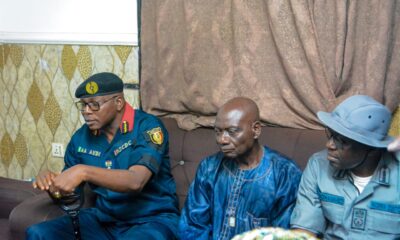
 National News2 days ago
National News2 days agoBenue killings: “These killings must stop,” NSCDC boss vows justice, orders tactical deployment
-
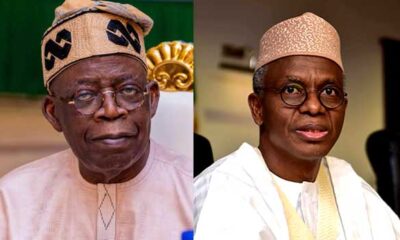
 Politics2 days ago
Politics2 days agoEl-Rufai predicts Tinubu’s re-election prospects
-

 Entertainment2 days ago
Entertainment2 days agoPastor Enenche sparks reactions after refusing N30 million from governor
-
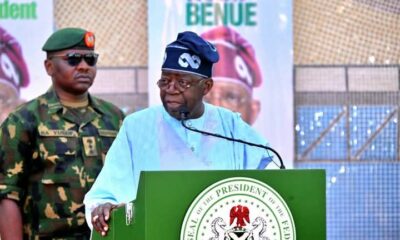
 National News2 days ago
National News2 days agoTinubu fires back at critics during Benue visit
-
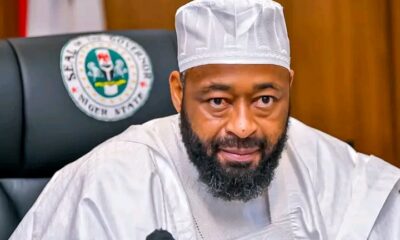
 Metro News2 days ago
Metro News2 days agoFlood: Bago confirms 207 dead, 700 missing in Mokwa





